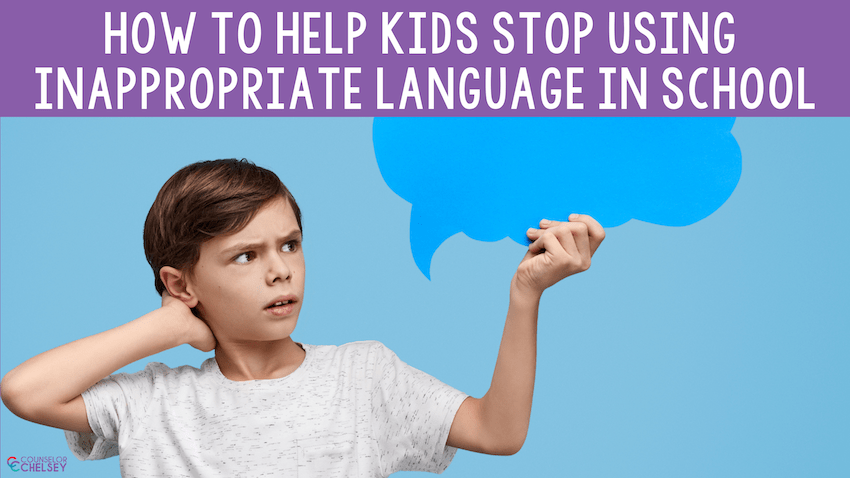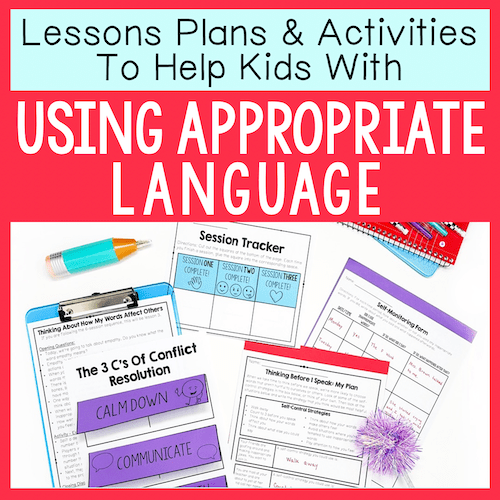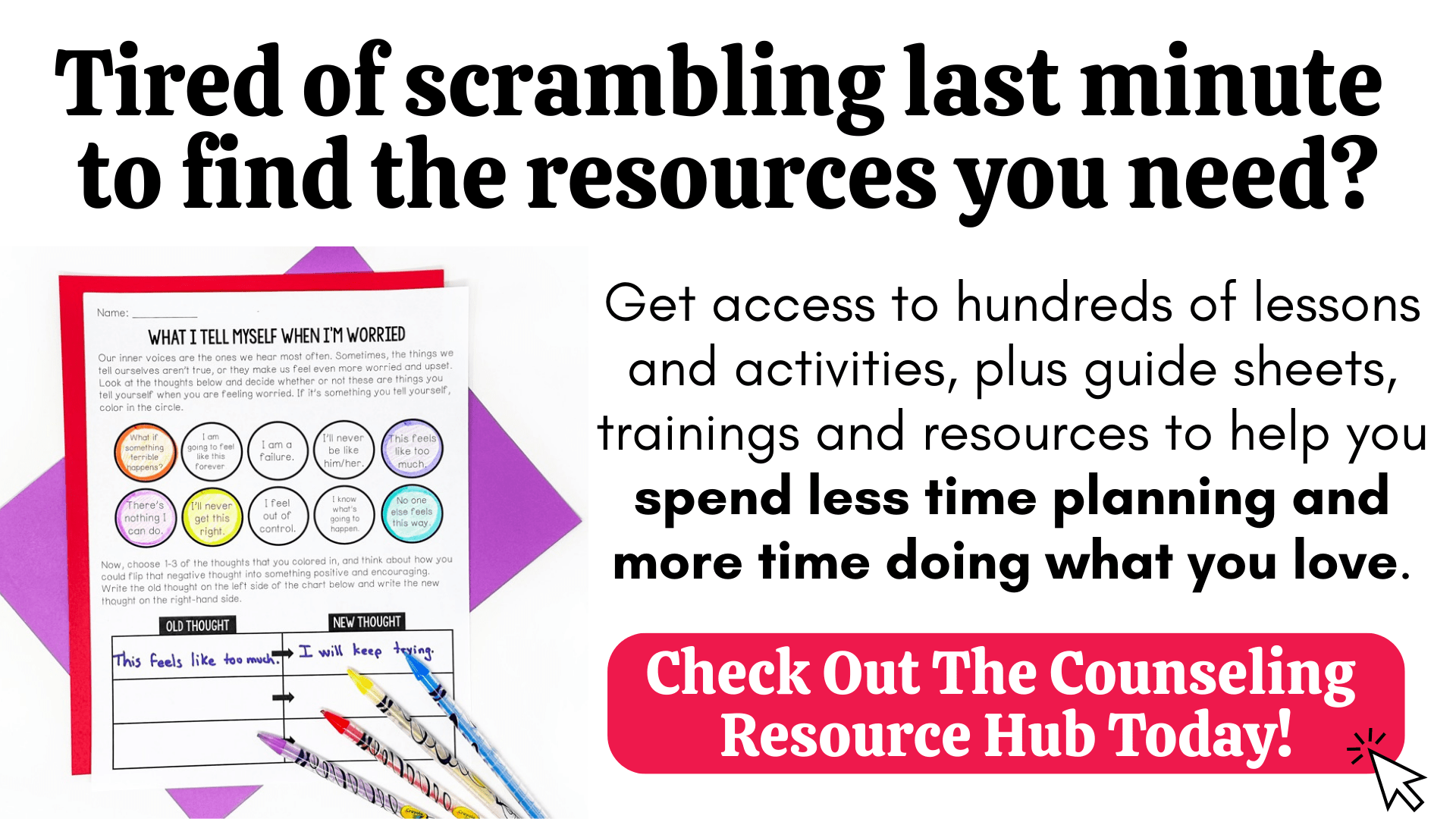How To Help Kids Stop Using Inappropriate Language In School
The things we say - and how we say them - are so powerful. Our words can impact what happens to us, how others feel, how others view us, and so much more. Using language can be a great way to communicate our needs and wants, but it’s also important for kids to understand that certain things aren’t appropriate to say at school.
This can be challenging for kids, especially if they don’t have these limits in other settings. However, it’s important to help students learn and follow the school rules as you work toward a positive school community.
What’s okay to say and what’s not okay to say will vary depending on your school rules and culture. However, below you’ll find tips and strategies for helping kids learn to use more appropriate language at school.
This post contains affiliate links. Please review my full disclosure policy for additional information.
“Inappropriate language” is a broad term that covers many things like coarse joking, using cuss words, name-calling, exclusion, etc. When thinking about how to best support a student, getting clarity about the problem is key.
Before coming up with intervention ideas, it may be helpful to ask yourself or your team these questions:
What is the student trying to accomplish with this language?
In which situations does the inappropriate language take place?
Two common reasons why students engage in inappropriate language are to meet a social goal/demand, and to show aggression. Once you have a better idea of the function of the behavior, it is easier to find effective ways to support the student.
Inappropriate Language As A Social Behavior
Some students may be using this type of language in social settings - as a form of expression, not aggression. In these situations, kids may be cursing or joking inappropriately with their friends. This may be an attempt to fit in with peers, or may be because they are in the habit of using language outside of school without consequences.
These worksheets will help your students develop self-control skills.
In these situations, it can be helpful to remind students that those things aren't okay for school, even though they may hear (or be able to use) those words in other places. One strategy is to help the student identify replacement language that can be used instead. Try asking the student to come up with alternative words and encourage them to make it fun! For example, if they frequently say s———, maybe they could try saying “shitake mushrooms” instead.
Students may also benefit from developing self-control skills that will help them consider the consequences of their actions and to think before they speak. This video is great for teaching kids about having a social filter, and these worksheets will help students learn to think about the effects of their actions.
If the student is receiving consequences for their inappropriate language, try giving logical consequences. These are consequences that are related to the behavior and that help the child repair the problem. Some examples of logical consequences for inappropriate language are:
Separating the student from situations where this behavior takes place
Having the student write 3-5 things they could have said instead
Having the student apologize if another person was hurt by what was said
Like with so many other behaviors, relationship building can also be an important way to support these students. If they feel connected, they may be less likely to say inappropriate things as a way to gain attention and connection to others.
Inappropriate Language As A Form Of Aggression
These activities will help your students learn about and practice I-statements.
Inappropriate language can also be used as a form of verbal aggression (think name calling, cursing at someone, etc.). This may be a result of a conflict they are having with someone, or as an expression of anger that they feel about a situation.
For this behavior, it can be helpful to give the student time and space to calm down. If the student is not regulated, it may be difficult for them to think clearly about what they are doing. You can guide the student through deep breathing, positive self-talk or other coping skills, but they may just need a safe space to allow their brains and bodies to calm down.
If this is a repeated behavior, try working with the student to help them learn ways to manage their anger and frustration. It’s best for students to learn and practice these skills when they are calm so that they can become more comfortable with the strategies. Then, it will be easier for the student to use them when they are feeling upset.
Conflict resolution skills can also be helpful. In some cases, the student may not know any way - other than aggression - to work through a conflict. Instead, try teaching them different things they can do, including using I-statements.
If this behavior is directed at you, it can be really frustrating, but staying calm and direct can be helpful. After the incident, help the student identify who was harmed and what they can do to repair that harm.
Sexualized Language
Another type of inappropriate language you may be working with is sexualized language. This might be sexual innuendos, comments, or suggestions.
Depending on the age of the student, a great first step in these situations is to work with families to identify where the student is getting this knowledge from. Then, talk about how to limit the child’s exposure to these topics. For example, caregivers may want to provide more supervision over the things that the student listens to and watches. The child may also benefit from increased parental supervision when the child is with specific people or friends.
When working with the student, help them in identifying what's appropriate for school and using a social filter. This is also a great opportunity to talk to the student about how their behavior is making others feel. Of course, if abuse is suspected, reach out to your local child protection agency.
Whether your students are using inappropriate language in social settings, as a form of aggression, or in a sexual way, my hope is that these tips and strategies will give you practical ways that you can help the students at your school. For more tips on supporting student behavior, grab my free behavior cheat sheets by signing up below. They are perfect to keep on hand, or even to give to families and other school staff!









